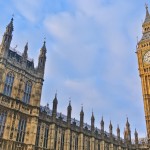George Osborne will extend the stamp duty hike to include owners of more than 15 properties, it was announced in the Budget. It was widely anticipated that landlords with more than 15 properties would be exempt from the stamp duty rise as it might lead to a reduction of investment in housing projects. David Cox, […]
 George Osborne will extend the stamp duty hike to include owners of more than 15 properties, it was announced in the Budget.
George Osborne will extend the stamp duty hike to include owners of more than 15 properties, it was announced in the Budget.
It was widely anticipated that landlords with more than 15 properties would be exempt from the stamp duty rise as it might lead to a reduction of investment in housing projects.
David Cox, managing director, Association of Residential Letting Agents, said: “Today’s news that larger investors will also have to pay the tax is even worse. Professional landlords – those who typically own more than 15 properties – play a vital role in providing rental stock to the market, and providing the army of renters we have in this country with housing.
“We’re already in a position where demand out-strips supply and as supply falls, rent costs rise, meaning the goal of home-ownership falls even further out of reach for most of the country’s renters.”
It was confirmed that the stamp duty rate will rise by 3% as of 1 April for those buying second homes or buy-to-lets.
From April 2016, the higher rate of Capital Gains Tax will also be cut from 28% to 20% and the basic rate from 18% to 10%. Residential property will still be taxed at current rates.
There will be an additional eight percentage point surcharge to be paid on residential property and carried interest.
The government said that retaining the 28% and 18% rates for residential property is intended to provide an “incentive for individuals to invest in companies over property”.
Cox said: “This is now the third Budget which directly attacks landlords. The sector has been punitively taxed, with stamp duty on buy-to-let properties, mortgage interest relief and now capital gains tax changes. It’s an outright assault on the sector!
“Every other sector has been offered a tax break – yet there is nothing here to help the private rented sector, including landlords – and most importantly tenants – who will see rent costs rise to subsidise the taxes that landlords pay on property. The government talks about wanting to help the younger generation get onto the property ladder, but with the changes announced today the supply of available property is bound to decrease, and as a result rents will rise.”
New stamp duty rates for commercial property were also announced.
The new rates and tax bands will be 0% for the portion of the transaction value up to £150,000; 2% between £150,001 and £250,000, and 5% above £250,000.
Buyers of commercial property worth up to £1.05 million will pay less in stamp duty.
Stamp duty rates for leasehold rent transactions will also change, with a new 2% stamp duty rate on leases with a net present value over £5 million.
Mark Harris, chief executive of mortgage broker SPF Private Clients, said: “The tweaks made to stamp duty on commercial property make it a fairer system and even the higher top rate is unlikely to deter investors. It is more likely to be absorbed into the cost of the asset.
“In future, more buy-to-let purchases will be made via limited companies even though in a shock move a policy statement supporting the Budget confirmed that those buying inside a limited company will still be hit by the 3% stamp duty surcharge. Arguably the changes in mortgage interest tax relief were always the biggest hardship for landlords so moving an existing portfolio into a company still makes sense for many investors as corporate entities will remain able to offset mortgage interest against their tax bill as a business expense.”














